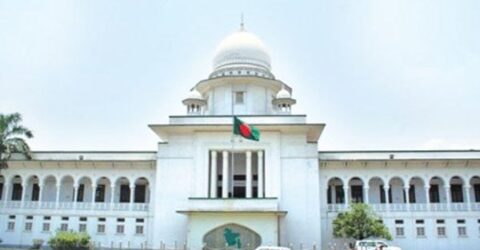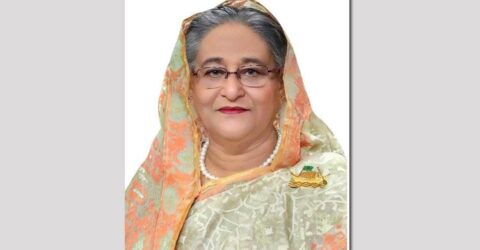Dhaka expects no situation in India to affect harmony in Bangladesh: Rizvi
The Bangladesh The Bangladesh
Today

DHAKA, – Prime Minister’s international affairs adviser Professor Dr Gowher Rizvi today said Dhaka does not like to see any situation in India that could affect Bangladesh’s secular social fabrics as he joined a seminar with Indian foreign secretary Harsh Vardhan Shringla being the keynote speaker.
“Our commitment to secularism is absolutely central and we do not want to see any situation where our secularism will be threatened anyway,” he told the seminar titled “Bangladesh and India: A promising Future” at a hotel in the capital.
Rizvi, a former senior faculty of Harvard and Oxford, expressed Dhaka’s willingness for continued close cooperation with India to ensure that “our
secularity in society grows from strength to strength”.
He said minorities in Bangladesh were “absolutely equal citizens” with government attaching highest priority in protecting and addressing their
rights and issues and there was no way Bangladesh would ignore a situation when minorities were affected in any possible way.
Bangladesh Institute of International and Strategic Studies (BIISS) and Indian High Commission in Dhaka jointly staged the seminar at Pan Pacific
Shonargaon Hotel when Indian High Commissioner Riva Ganguly Das and BIISS Chairman Fazlul Karim also spoke.
Rizvi described India’s National Register of Citizens (NRC) issue as a burning one but expected it to remain as an internal or domestic affair of
the neighbouring country as stated repeatedly by Indian Prime Minister Narendra Modi having no impact on Bangladesh.
“We have accepted that (repeated assurance) and we have good reasons to believe that we should not worry,” he said. The Bangladesh premier’s adviser termed as “heavenly” the Dhaka-Delhi ties saying the two neighbours by now resolved the seven-decade-old land boundary disputes in a peaceful manner, setting an example for the other parts of the globe though there were some outstanding issues “as all neighbours do have”.
But Rizvi said he was unhappy with the existing pace of progress in resolving the outstanding issues which “we have agreed previously” fearing
that “opportunities to be lost by the delay could be costly”. “It is in our interests, it is to our benefit just as it is to India’s benefit and there is no issues that cannot be resolved,” he observed.
He expressed his satisfaction that the process of water sharing issues of transboundary rives have been resumed and insisted on expediting the process and simultaneously expected the disbursement of Indian’s pledged line of credit to Bangladesh would be quickened as well.
“We need to take fresh look and dream of articulating new vision how far Bangladesh and India can go,” he said. Shringla arrived in Dhaka on a two-day visit in the morning and upon arrival at Hazrat Shahjalal International Airport, he was received by his Bangladesh counterpart Masud Bin Momen.




